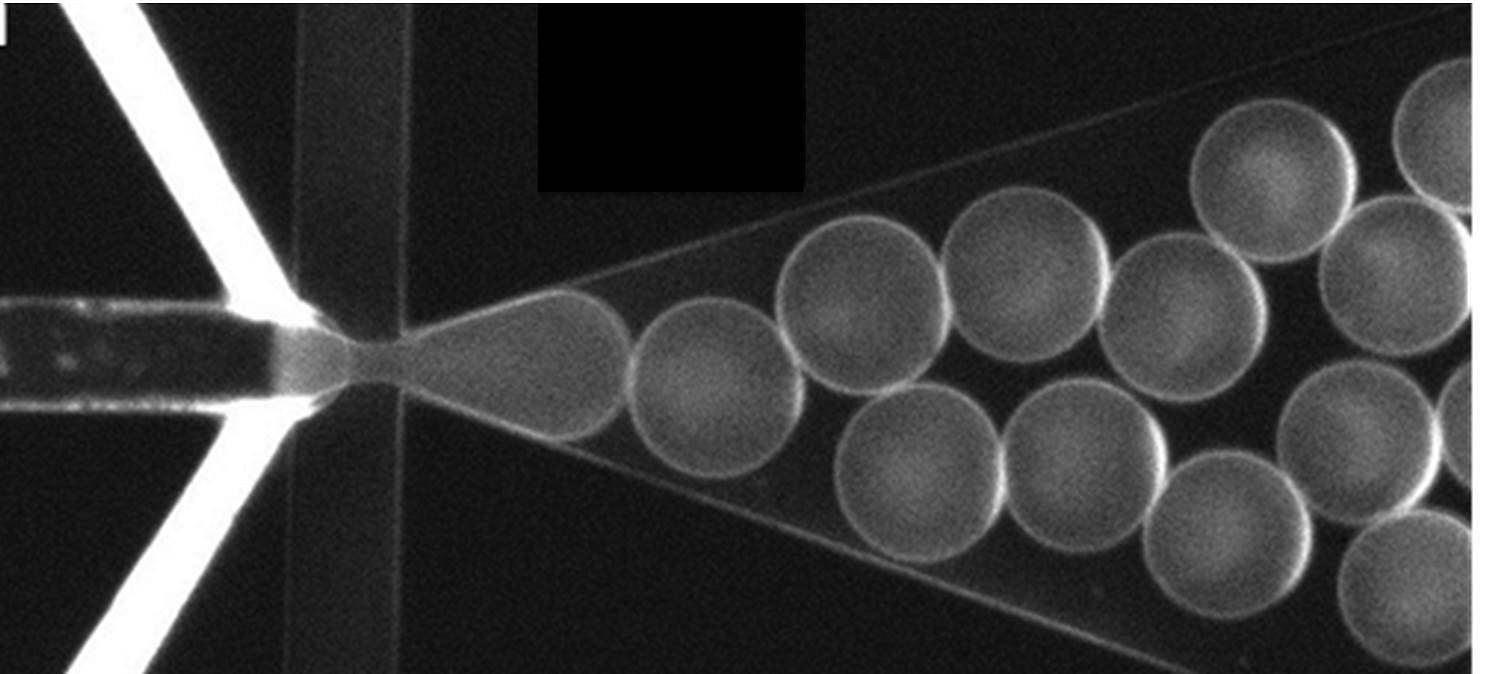The ERC grant of 2.5 million euros for Professor Cees Dekker allows him to pursue artificial cell division with a mix of nano physics and synthetic biology.
Bionano researcher Professor Cees Dekker (Kavli Institute for Bionano Science, Faculty of Applied Sciences) will use the ERC Advanced Grant that he received to develop artificial cell division within five years. He has planned to produce soap-like bubbles – filled with a watery solution containing DNA and proteins – called liposomes with a belt of proteins around it. As the belt contracts, it will gradually close the connection between the two halves and divide one liposome in two.
“It’s a challenging proposal”, said Professor Rutger van Santen (TU Eindhoven). He worked on liposomes and the conditions under which they divide. “Cell division is a crucial and elementary feature of living cells. So developing cell division is a good starting point in the development of artificial living cells.” Van Santen explained that ERC grants are awarded to challenging proposals that promise exciting research while developing new science on the way.
Dekker’s proposal fits that frame nicely. In the development of cell division in liposomes, he will open up three new fields of scientific research. Dekker will study E. coli bacteria in artificial shapes like rectangles or triangles to get a better understanding of the mechanics of natural cell division (under unnatural circumstances).
Dekker will also experiment with proteins by placing them in nano chambers to unravel the spatial organisation of the biomolecules involved in cell division. Finally, Dekker will develop a chip-based technology for creating liposomes for his research. Although simple in form – fluid surrounded by a membrane of soap-like molecules – liposomes don’t form spontaneously. Instead, they have to be blown from a small opening under the right conditions.
Whether or not Dekker will attain his goal within five years is less interesting than the progress he will make on technologies and understanding in bionanoscience, said his colleague Van Santen. He believes the cell dividing technology could have its first application in cancer medicine. “Artificial cell division could allow doctors to target cancer cells with liposomes filled with specific toxins. Once close to the target, the liposomes can start dividing and thus increase the dose locally.” (JW)



Comments are closed.